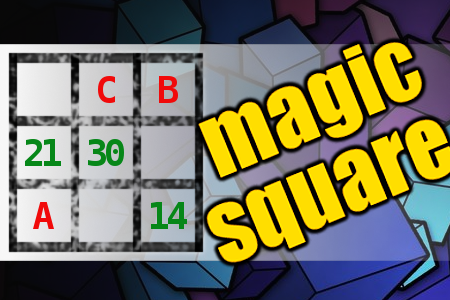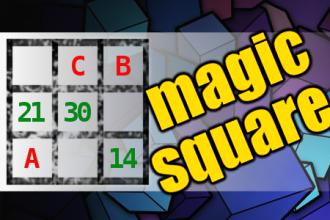MAGIC SQUARE: Calculate A-B*C
The aim is to place the some numbers from the list (11, 12, 13, 14, 20, 21, 28, 30, 37, 84) into the empty squares and squares marked with A, B an C. Sum of each row and column should be equal. All the numbers of the magic square must be different. Find values for A, B, and C. Solution is A-B*C.Correct answers: 1
#brainteasers #math #magicsquare


